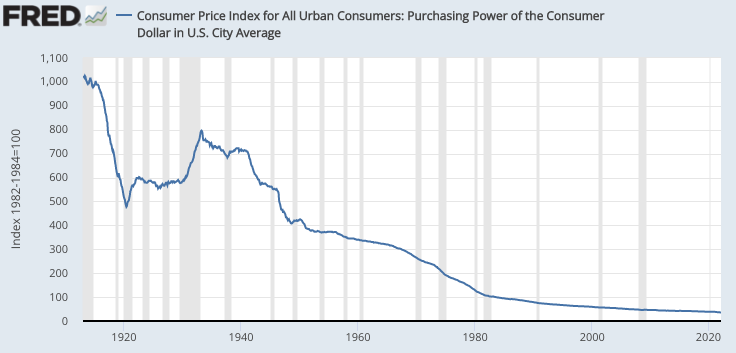A word on Bitcoin
Bitcoin is more important and relevant than ever.
Bitcoin does these two important things better than anything else:
A decentralized payment platform
A financial investment
The Platform
… is the blockchain. This is a peer-to-peer network with no trusted central authorities. Inherent in this decentralized design is that it’s more difficult or impossible to censor or control the network. Changes to Bitcoin happen collectively and transparently by the network participants, in contrast to top-down through hierarchies.
This ruffles the feathers of incumbent authorities that are accustomed to exerting power through control. Decentralized platforms are a check against the top-down approach. Thus, Bitcoin is highly political and controversial.
The US Congressman from Minnesota seems to agree in his response to the Canadian Emergencies Act this week:
For context, there’s a protest against COVID restrictions in Canada where truckers have blocked an important trading route, causing major disruptions. In response, Canada’s government is cutting off their financial access by sending banks a lists of names to freeze their assets. No court order, no arrests, no proof of guilt.
While I imagine many are guilty, the issue illustrated here is how easy it is for the government to do this without the typical checks on power through the judicial system. This is only possible in the past couple decades with more digital and centralized payment systems.
The test of good policy is if you accept that your enemy could have that power. I am very uncomfortable with that idea.
A Financial Investment
For many of the reasons investors invest in gold, they could invest in Bitcoin.
The Federal Reserve targets a few percentage of inflation each year, resulting in USD purchasing power decline over time:
Bitcoin has a different monetary policy. It has a hard cap of 21 million with a transparent and predictable inflation rate until that cap. As Bitcoin inflation slows, and USD inflation continues, I would expect Bitcoin to outperform USD.
Quick history lesson: The US Dollar became global reserve currency in the Bretton Woods agreement in 1944. Literally, the winners of WW2 agreed that they would peg their currencies to the dollar, which then would be pegged to gold. But then in 1971 US terminated the gold peg and became a free-floating fiat currency along with all the other nations’ currencies. The central banks could then print money as they see fit.
All that to say, surprisingly, the current US Dollar monetary system is still pretty new and unproven over generations. It’s only been around for 50 years.
There are trade-offs with our inherited ways of the world. So, it’s valuable to have another option to consider.



